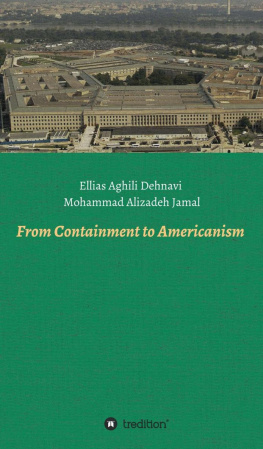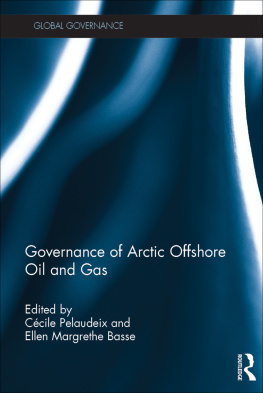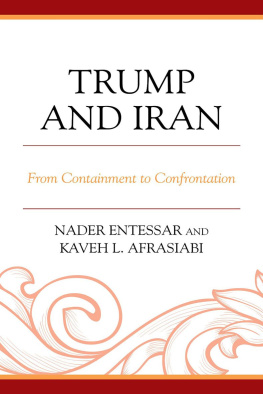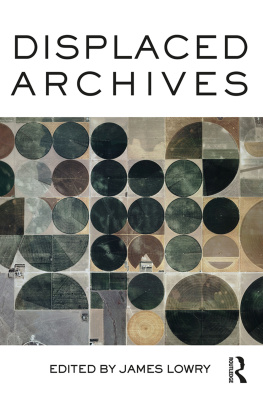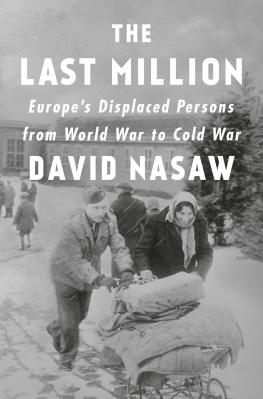Cecile Dubernet - The International Containment of Displaced Persons
Here you can read online Cecile Dubernet - The International Containment of Displaced Persons full text of the book (entire story) in english for free. Download pdf and epub, get meaning, cover and reviews about this ebook. year: 2017, publisher: Routledge, genre: Politics. Description of the work, (preface) as well as reviews are available. Best literature library LitArk.com created for fans of good reading and offers a wide selection of genres:
Romance novel
Science fiction
Adventure
Detective
Science
History
Home and family
Prose
Art
Politics
Computer
Non-fiction
Religion
Business
Children
Humor
Choose a favorite category and find really read worthwhile books. Enjoy immersion in the world of imagination, feel the emotions of the characters or learn something new for yourself, make an fascinating discovery.

- Book:The International Containment of Displaced Persons
- Author:
- Publisher:Routledge
- Genre:
- Year:2017
- Rating:4 / 5
- Favourites:Add to favourites
- Your mark:
- 80
- 1
- 2
- 3
- 4
- 5
The International Containment of Displaced Persons: summary, description and annotation
We offer to read an annotation, description, summary or preface (depends on what the author of the book "The International Containment of Displaced Persons" wrote himself). If you haven't found the necessary information about the book — write in the comments, we will try to find it.
The International Containment of Displaced Persons — read online for free the complete book (whole text) full work
Below is the text of the book, divided by pages. System saving the place of the last page read, allows you to conveniently read the book "The International Containment of Displaced Persons" online for free, without having to search again every time where you left off. Put a bookmark, and you can go to the page where you finished reading at any time.
Font size:
Interval:
Bookmark:


2 Park Square, Milton Park, Abingdon, Oxon OX14 4RN
711 Third Avenue, New York, NY 10017, USA
Product or corporate names may be trademarks or registered trademarks, and are used only for identification and explanation without intent to infringe
The publisher has gone to great lengths to ensure the quality of this reprint but points out that some imperfections in the original copies may be apparent.
The publisher has made every effort to trace copyright holders and welcomes correspondence from those they have been unable to contact.
ISBN 13: 978-1-315-18816-4 (ebk)
| AFP | Agence France Presse [French News Agency] |
| BiH | Bosnia i Herzegovina [Bosnia and Herzegovina] |
| BSA | Bosnian Serb Army |
| CANBAT | Canadian Battalion |
| CNN | Cable News Network |
| DPA | Dayton Peace Agreement |
| DPKO | Department of Peace Keeping Operations |
| EC | European Community |
| ECOMOG | Economic Community of West Africa Monitoring Group |
| EU | European Union |
| FAR | Forces Armes Rwandaises [Rwandese Armed Forces] |
| FIDH | Fdration Internationale des Droits de lHomme [International Federation for Human Rights] |
| ICG | International Crisis Group |
| ICRC | International Committee of the Red Cross |
| IDPs | Internally Displaced Persons |
| IFOR | Implementation Force |
| IOC | Integrated Operation Centre |
| IOM | International Organisation for Migration |
| IPTF | International Police Task Force |
| IRC | International Rescue Committee |
| JNA | Yugoslav National Army |
| KLA | Kosovo Liberation Army |
| MOU | Memorandum of Understanding |
| MSF | Mdecins Sans Frontires [Doctors Without Borders] |
| NATO | North Atlantic Treaty Organisation |
| NGO | Non Governmental Organisation |
| ODA | Overseas Development Administration |
| ORC | Open Relief Centre |
| OSCE | Organisation for Security and Cooperation in Europe |
| RPA | Rwandese Patriotic Army |
| RPF | Rwanda Patriotic Front |
| RPG | Refugee Policy Group |
| SCF | Save the Children Fund |
| SFOR | Stabilisation Force |
| SOAS | School of Oriental and African Studies |
| UNAMIR | United Nations Mission for Rwanda |
| UNDHA | United Nations Department for Humanitarian Affairs |
| UNDP | United Nations Development Programme |
| UNDPI | United Nations Department of Public Information |
| UNITAF | United Nations International Task Force |
| UNHCR | United Nations Commissioner for Refugees |
| UNOSOM | United Nations Operation for Somalia |
| UNPAs | United Nations Protected Areas |
| UNPROFOR | United Nations Protection Force |
| UNREO | United Nations Rwanda Emergency Office |
| UNSC | United Nations Security Council |
| UNSG | United Nations Secretary-General |
| USCR | United States Committee for Refugees |
| USAID | United States Agency for International Development |
| WFP | World Food Programme |
Font size:
Interval:
Bookmark:
Similar books «The International Containment of Displaced Persons»
Look at similar books to The International Containment of Displaced Persons. We have selected literature similar in name and meaning in the hope of providing readers with more options to find new, interesting, not yet read works.
Discussion, reviews of the book The International Containment of Displaced Persons and just readers' own opinions. Leave your comments, write what you think about the work, its meaning or the main characters. Specify what exactly you liked and what you didn't like, and why you think so.

